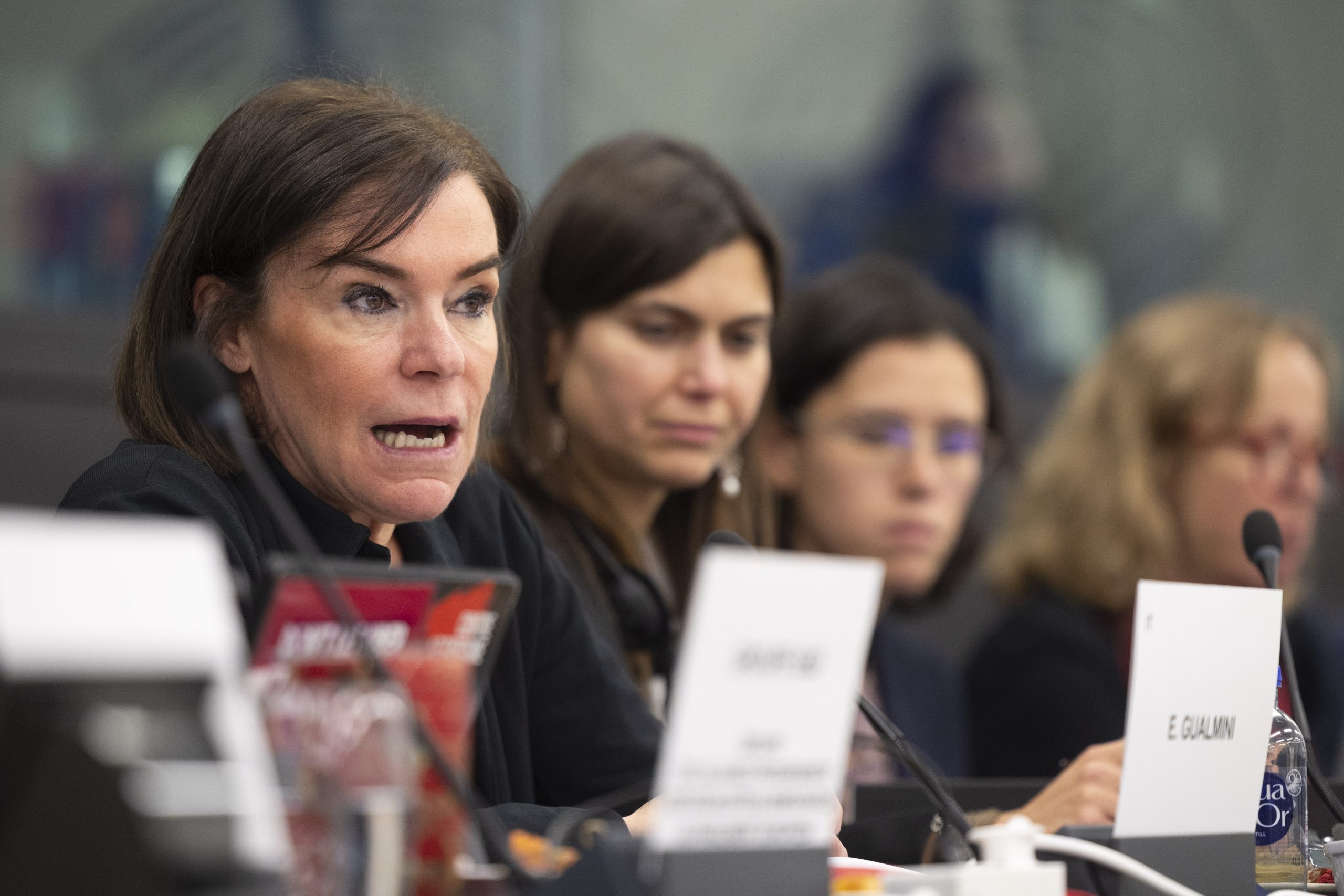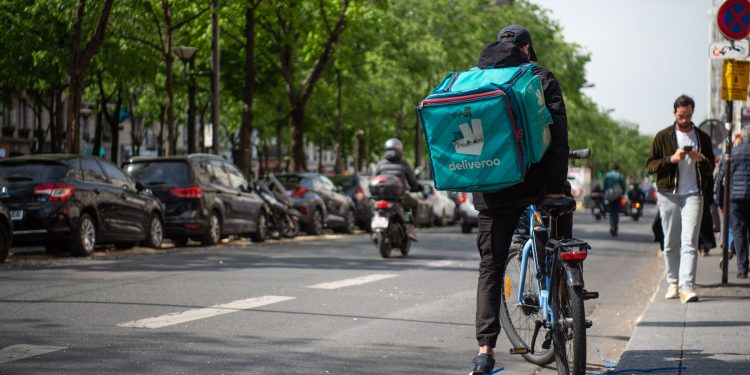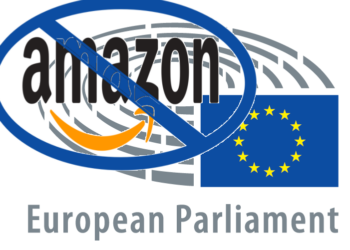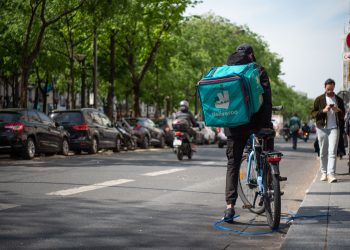Brussels – Legislation that could serve as the gold standard in the world, expected by nearly 30 million digital workers in Europe: Yet the EU directive that would grant better rights to those working in the gig economy has been taken hostage by four member states just metres from the finish line. And now it is in danger of being blown, at least until the next legislative term, when it is estimated that workers via app will already be 43 million.
“An incomprehensible decision,” the bill’s rapporteur for the parliament, Democrat Elisabetta Gualmini, had commented incredulously after the directive was blocked—with an agreement already reached between the EU institutions—last February 16 by France, Germany, Estonia, and Greece. For to persevere is diabolical: it was, in fact, the second time that the directive was blown at the last step in the legislative process, that of formal approval of the agreement by the member states. The first time, just days before Christmas, as a mockery to the millions of riders engaged in the delivery of parcels and packages.

On that occasion, as many as 12 countries had opposed a very ambitious text. At that point, the parliament—and the Belgian presidency of the EU Council-—rolled up its sleeves and filed down the directive, softening it to meet the demands of EU governments. “Our red line is the change of the status quo, that is, the reversal of the burden of proof,” Gualmini explained to the press. Bottom line: the pivot on which the directive is based is the introduction of a presumption of employment, to rescue the more than 5.5 million digital platform workers who are estimated by the EU to be misclassified as self-employed across the EU.
The two poles of the directive: the presumption of subordinate relationship and the reversal of the burden of proof
In the first agreement, EU Council and Parliament had stipulated that for the presumption of a subordinate relationship to be triggered, the co-presence of two out of five indicators would be required, covering maximum limits to the amount of money workers can receive, control over the assignment, distribution and performance of tasks, restrictions on the choice of hours and freedom to organize work, and rules on look or behaviour. Too far-fetched: in the February agreement, this constraint had been removed and replaced by an obligation for national governments to “establish a relative legal presumption of employment at the national level” so that the presumption of subordinate relationship could be triggered by “facts indicating control and direction, in accordance with national law and applicable collective agreements.”
In both cases, the second pillar of the directive protecting digital workers remained: the reversal of the burden of proof, that is, the shift from the worker to the platform of the obligation to gather evidence to prove that a worker is truly self-employed. Paris voted against the agreement despite the new downward compromise, while Berlin, Athens, and Tallinn abstained. Which, for voting purposes, counts as an opposing position and is therefore sufficient to form a blocking minority of four countries.
“Unprecedented lobbying aggressiveness” and the interests of member countries
“The real elephant in the room is an aggressiveness of lobbying activities never seen before in the parliament,” denounced the Socialists and Democrats (S&D). Large digital platforms have huge budgets and entire teams to influence European policies, as evidenced by the recent case of Amazon, from which the parliament withdrew as many as 14 badges to enter its premises. Gualmini explained that, over the two years she has been working on the dossier, she has always met with platform delegations together with union federations. And that on the day of the vote on the directive in the Strasbourg hemicycle, some large companies “called all the MEPs and put up billboards in all the metro stations in the European quarter” of Brussels.
 When one considers that there are over 600 digital platforms in the EU, it is clear how much weight they can wield to shift the balance, although some, such as Just Eat, are “in favour of the directive because they don’t want an unfair market.” But lobbying has not only been directed toward the European Parliament. It has also and especially been directed toward national governments. It is no coincidence—insisted Agnes Jongerius, S&D spokesperson for labour policies—that Bolt was born in Estonia and that French President Emmanuel Macron had favoured, in the capacity of Economy Minister in Francois Hollande’s government, Uber‘s entry into the country.
When one considers that there are over 600 digital platforms in the EU, it is clear how much weight they can wield to shift the balance, although some, such as Just Eat, are “in favour of the directive because they don’t want an unfair market.” But lobbying has not only been directed toward the European Parliament. It has also and especially been directed toward national governments. It is no coincidence—insisted Agnes Jongerius, S&D spokesperson for labour policies—that Bolt was born in Estonia and that French President Emmanuel Macron had favoured, in the capacity of Economy Minister in Francois Hollande’s government, Uber‘s entry into the country.
Beyond the conservative government of Kyriakos Mītsotakīs in Greece, tying the executive of Kaja Kallas in Estonia, Macron’s in France, and Olaf Scholz’s in Germany, is one political formation: the liberals, who govern in Tallinn and Paris and are part of the traffic light coalition that leads Berlin. “The fault lies with the liberals, not with Scholz,” is the line of the Social Democrats, of which the German SPD (the chancellor’s party) is a leading party even among the Euro Parliament benches. “We talked with Scholz and the SPD, but the agreement in the German government is that if one party in the coalition disagrees, they abstain,” they explain. In fact, it would only take the change of position of one country to break the stalemate.
The Belgian rotating presidency of the EU Council has put on its agenda a new attempt on March 11, to finalize the directive before the end of the legislative term. But “if there is no agreement, we will vote in the first reading the text of the first agreement, the stronger one,” Elisabetta Gualmini warned again. In this way, the Euro Parliament would save the work done in the last two years, passing the baton (but only for negotiations with the Council) to future MEPs.
English version by the Translation Service of Withub








